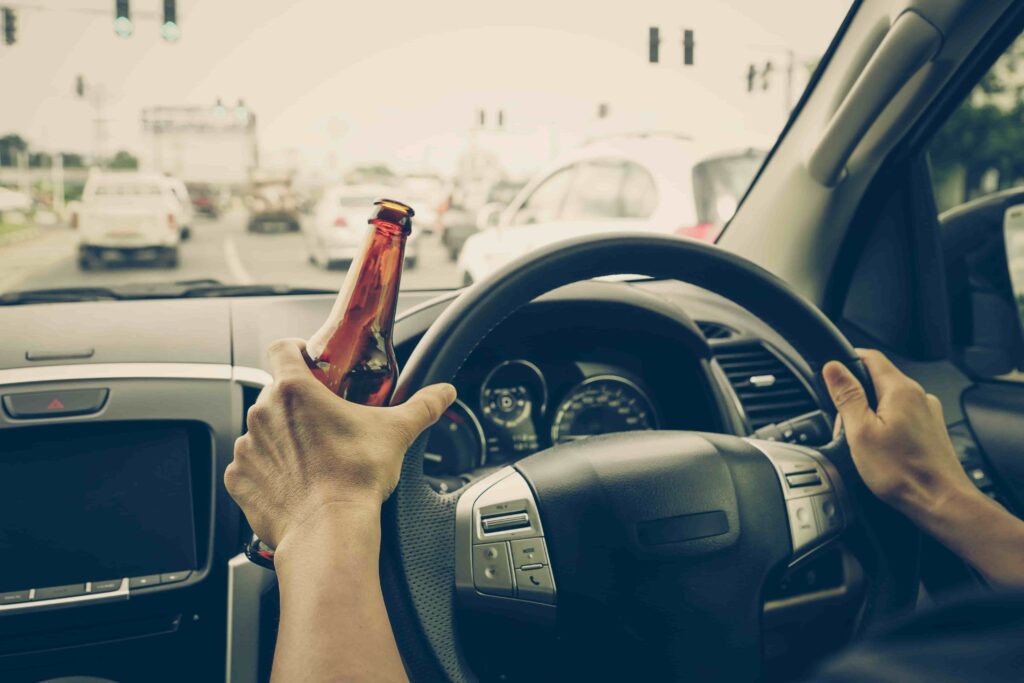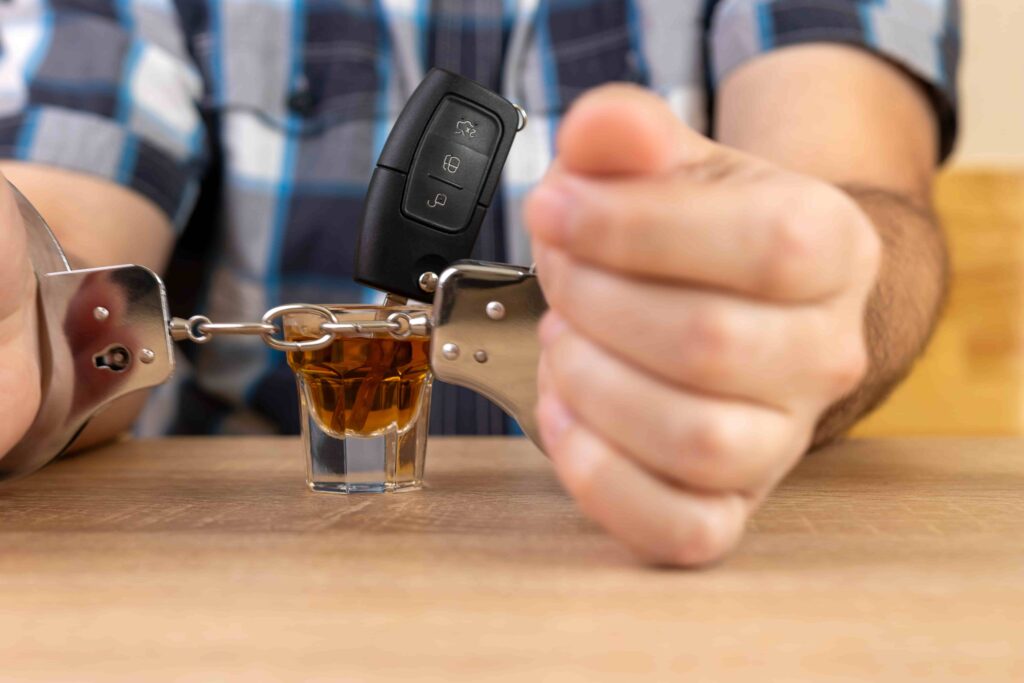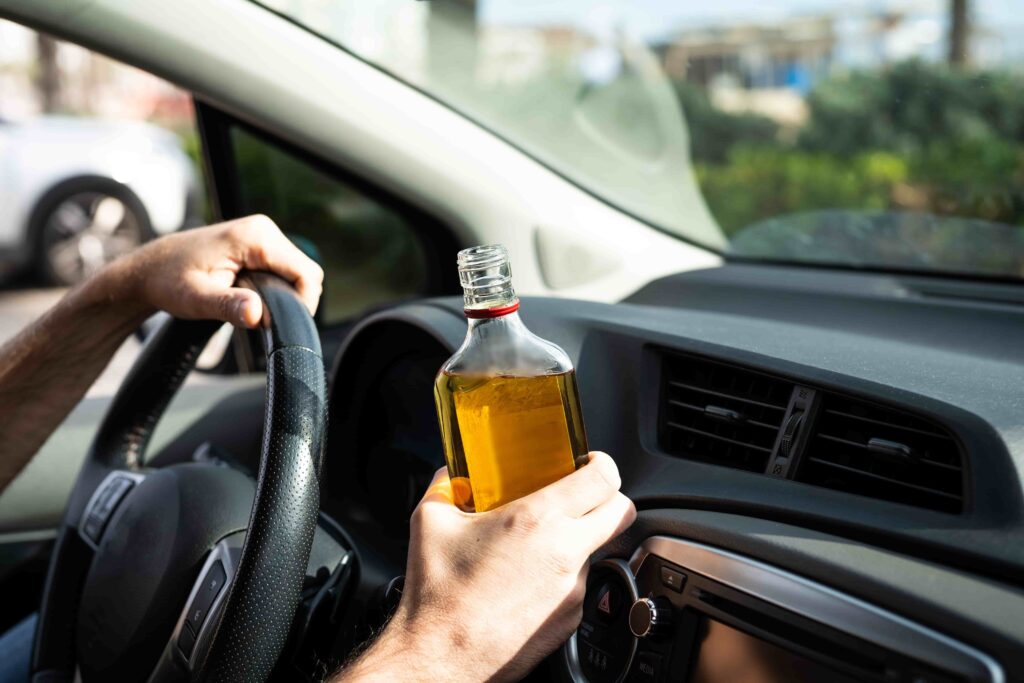Getting arrested for DUI in Florida can leave you worried about your future, your license, and your freedom. You might also be concerned about how the arrest will affect your family, your job, and your reputation. A Florida DUI lawyer with skill and experience can protect your rights and work to reduce the impact of the charges.
DUI offenses in Florida bring serious penalties, including jail time, steep fines, and license suspension. The legal process moves quickly after an arrest. Contact Gross Law Group now for a free consultation gives you the chance to understand your options and begin building your defense right away.
Schedule Your Free Consultation
Key Takeaways Involving Florida DUIs
- Florida law forbids driving with a blood alcohol concentration (BAC) of 0.08% or higher, with stricter limits for commercial drivers (0.04%) and drivers under 21 (0.02%).
- Penalties grow substantially for a BAC of 0.15% or higher and for repeat offenses. A third DUI within 10 years constitutes a felony.
- After a DUI arrest, you have only 10 days to request a formal hearing with the Department of Highway Safety and Motor Vehicles to fight the automatic suspension of your driver's license.
- A DUI conviction stays on your Florida record permanently. The law does not allow you to expunge or seal a DUI conviction.
- A DUI defense lawyer protects your rights by investigating the traffic stop, challenging the evidence, and negotiating with prosecutors to seek a favorable outcome.
What Is a DUI Charge in Florida?
Florida law makes it illegal to drive or be in actual physical control of a vehicle while under the influence of alcohol, drugs, or a combination of both. A prosecutor can prove a DUI either by showing that alcohol or drugs impaired a driver’s ability to operate the vehicle safely or by presenting evidence that the driver’s blood alcohol content (BAC) exceeded the legal limit.

Blood Alcohol Content (BAC) Limits
The BAC limit for most drivers in Florida is 0.08 percent. Commercial drivers have a stricter limit of 0.04 percent. Drivers under the age of 21 face a zero-tolerance policy with a limit of 0.02 percent. Even with a BAC below the legal limit, an officer can still arrest you if they believe alcohol or drugs impaired your driving.
Enhanced Penalties for High BAC
Drivers with a BAC of 0.15 percent or higher face harsher penalties, including longer license suspensions, higher fines, and possible jail time. The same applies if a minor was in the vehicle at the time of arrest.
DUI vs. DWI in Florida
Some states use the term "DWI" for driving while intoxicated. Florida law uses "DUI," or driving under the influence, to cover alcohol, drugs, or a combination of both.
Florida DUI Penalties and Consequences
A DUI conviction in Florida triggers mandatory penalties that grow more severe with each offense. Judges must follow specific sentencing guidelines, and even a first conviction can carry lasting effects on your record, your driving privileges, and your finances.
First Offense Penalties

A first DUI conviction may bring up to six months in jail, fines between $500 and $1,000, probation, DUI school, and a license suspension lasting six months to one year. If your BAC was 0.15 percent or higher, or if a minor was in the vehicle, the potential jail time can increase to nine months and fines can rise to $2,000.
Repeat Offense Escalation
A second DUI within five years includes at least 10 days in jail, fines between $1,000 and $2,000, a five-year license revocation, and mandatory installation of an ignition interlock device. A third conviction within 10 years is a felony, carrying the possibility of up to five years in prison and fines of $5,000.
License Suspension Periods
Suspension lengths vary depending on the offense. A first conviction carries six months to a year, a second conviction within five years brings a minimum five-year revocation, and a third conviction within 10 years brings at least 10 years. Some drivers can apply for a hardship license, but eligibility depends on compliance with other penalties.
Ignition Interlock Device Requirements
Florida courts often require the installation of an ignition interlock device after certain convictions. The driver pays for installation, monthly monitoring, and eventual removal. First offenders with a BAC of 0.15 percent or more and all repeat offenders typically must use the device.
Financial Costs and Fines
Beyond court fines, a DUI conviction often means paying probation fees, DUI school tuition, license reinstatement costs, and dramatically higher insurance premiums. These expenses add up quickly and can affect your budget long after the court case ends.
How Can a Florida DUI Lawyer Help Your Case?
An arrest for DUI in Florida sets several legal processes in motion at once. The court system, the Department of Highway Safety and Motor Vehicles, and law enforcement all have separate roles. A skilled attorney can protect your rights and work toward a better outcome by addressing every stage of the case.
Case Investigation and Evidence Review
A DUI defense often begins with a close review of the arrest details. Your lawyer can examine dashcam or bodycam footage, police reports, and witness accounts. Sometimes, small mistakes in the arrest procedure or gaps in the evidence can become a strong defense. Reviewing the arrest from every angle helps identify points that may persuade the prosecutor to reduce or drop charges.
Challenging Field Sobriety Tests
Field sobriety tests are not always reliable. Weather conditions, poor lighting, uneven pavement, and even a driver’s footwear can affect performance. Your attorney can point out these issues and show how they may have influenced the officer’s decision to arrest you.
Questioning Breathalyzer Accuracy
Breathalyzer machines require careful calibration and regular maintenance. If the device wasn’t serviced correctly or the officer didn’t follow the proper testing steps, the results may be inaccurate. Your lawyer can obtain maintenance logs, training records, and calibration reports to see if the machine’s readings are valid.
Negotiating Plea Agreements
In cases where the evidence is strong, a lawyer can still make a difference by negotiating for reduced charges or lighter penalties. For example, you might qualify for a reduced charge of reckless driving, which carries fewer long-term consequences than a DUI.
Court Representation and Trial Defense
If your case goes to trial, you’ll need someone who can question witnesses, challenge the prosecution’s arguments, and present evidence in your favor. A Florida DUI lawyer who understands the court process can keep the case moving efficiently and give you a stronger chance of reaching a favorable verdict.
Common DUI Defenses in Florida
Not every DUI arrest leads to a conviction. The law requires that police follow specific procedures and that prosecutors prove each element of the charge beyond a reasonable doubt. A knowledgeable defense lawyer can examine the evidence for weaknesses and build arguments that challenge the case against you.
Improper Traffic Stop
An officer must have a lawful reason, known as reasonable suspicion, to pull over a driver. Examples include traffic violations such as speeding, running a stop sign, or swerving within the lane in a way that suggests impairment. If the stop happened without a valid reason, your attorney can file a motion to suppress the evidence collected afterward. Without that evidence, the prosecution may have no case to move forward.
Faulty Testing Equipment
Breathalyzers and other chemical testing devices must be calibrated and maintained according to state rules. If the machine was overdue for maintenance, had a history of errors, or wasn’t operated according to protocol, the results may not hold up in court. Your defense can involve requesting the maintenance logs, training records for the operator, and any reports of prior malfunctions.
Medical Conditions Affecting Test Results
Certain medical conditions can create false positives or mimic the signs of intoxication. Acid reflux can push alcohol from the stomach into the mouth, skewing breath test results. Diabetes can cause the body to produce acetone, which some machines misread as alcohol. Neurological conditions, inner ear problems, or physical injuries can make a person appear unsteady during field sobriety tests, even without any alcohol or drug use.
Chain of Custody Issues
When police collect blood or urine samples, they must follow strict steps to preserve the integrity of the evidence. The chain of custody documents every person who handled the sample from collection to testing. If those records show missing signatures, unexplained gaps, or improper storage, the court may rule the evidence unreliable.
What Should You Expect During the DUI Legal Process?
After a DUI arrest in Florida, the legal process moves quickly. Several steps happen before the case reaches a conclusion, and knowing what to expect can help you prepare and make informed choices.
Arrest and Booking Procedures
When an officer believes you are driving under the influence, they may arrest you and transport you to a police station or county jail. Booking includes recording your personal information, taking fingerprints, and photographing you. In some cases, you may be released on bond shortly after booking.
Administrative License Suspension Hearing

A DUI arrest triggers two cases: one in criminal court and one with the Florida Department of Highway Safety and Motor Vehicles. The administrative case focuses on your driving privileges. You have 10 days from the date of arrest to request a hearing to contest the suspension. If you miss the deadline, the suspension will take effect automatically.
Arraignment and Plea Entry
At the arraignment, the court formally reads the charges against you. You’ll have the opportunity to enter a plea of guilty, not guilty, or no contest. This stage also allows your lawyer to begin engaging with the prosecutor on possible resolutions.
Pre-trial Motions and Discovery
Your attorney can file motions to challenge the legality of the stop, the arrest, or the evidence collected. Discovery is the process of obtaining evidence from the prosecution, such as police reports, test results, and video footage. This stage is critical for building a defense strategy.
Trial or Plea Resolution
If no agreement is reached, the case proceeds to trial. A judge or jury will hear evidence from both sides before delivering a verdict. In some situations, a plea agreement can resolve the case before trial, reducing potential penalties and avoiding the uncertainty of a jury decision.
Schedule Your Free Consultation
DUI Diversion Programs and Alternative Sentencing
Some Florida counties offer programs that can help certain defendants avoid a conviction.
- First-Time Offender Programs: Some programs allow first-time offenders to complete DUI school, community service, and treatment in exchange for reduced charges.
- Treatment Court Options: Treatment courts provide counseling and supervision for those whose DUI involved substance abuse issues.
- Community Service Alternatives: Judges may require community service hours in addition to, or in place of, some penalties.
- Probation Conditions: Probation may include regular check-ins, random drug and alcohol testing, and restrictions on travel.
How Much Does a DUI Conviction Cost in Florida?

The financial impact of a DUI conviction often extends far beyond the courtroom.
Court Fines and Fees
Fines range from hundreds to thousands of dollars, with higher amounts for repeat offenders or aggravated circumstances.
Insurance Rate Increases
A DUI conviction usually leads to steep increases in car insurance premiums, sometimes for several years.
License Reinstatement Costs
Reinstating your license requires paying administrative fees, completing DUI school, and possibly installing an ignition interlock device.
Ignition Interlock Expenses
Monthly fees for ignition interlock devices add to the total cost, as well as installation and removal charges.
Long-term Financial Impact
Lost income from missed work, reduced job opportunities, and ongoing higher insurance rates contribute to the long-term financial strain.
Frequently Asked Questions About Florida DUIs
Can I refuse a Breathalyzer test in Florida?
Yes, but refusing carries penalties, including a one-year license suspension for a first refusal and an 18-month suspension for subsequent refusals.
How long do I have to request a DMV hearing?
You have 10 days from the date of arrest to request the hearing.
Will a DUI conviction affect my employment?
Some employers may terminate or refuse to hire someone with a DUI conviction, especially for jobs that involve driving.
Can I get a DUI expunged from my record?
Florida does not allow expungement of DUI convictions, but if charges are reduced or dismissed, you may qualify to seal or expunge the record.
What happens if I'm arrested for DUI as an out-of-state driver?
Florida will report the conviction to your home state, which may impose its own penalties.
What does "actual physical control" of a vehicle mean?
Actual physical control means you are in or on a vehicle and have the capability to operate it, even if you are not driving.
For example, sitting in the driver's seat with the keys in the ignition while the car is parked could lead to a DUI arrest if you are impaired.
The prosecution looks at factors like your location in the vehicle, the location of the keys, and whether the engine was running.
What happens if my DUI involved an accident with property damage or injury?
A DUI that causes property damage or non-serious personal injury is a first-degree misdemeanor, with penalties including up to one year in jail and a $1,000 fine.
If the DUI causes serious bodily injury to another person, it becomes a third-degree felony, punishable by up to five years in prison. If the accident results in a death, the charge escalates to DUI manslaughter, a second-degree felony with a mandatory minimum prison sentence.
Can I be convicted of DUI if my BAC was below 0.08%?
Yes. Florida's DUI law has two parts. The first part makes it illegal to drive with a BAC of 0.08% or higher. The second part makes it illegal to drive while your "normal faculties are impaired" by alcohol or drugs.
A prosecutor can use evidence like poor driving, failed field sobriety tests, or an officer's observations to argue for a conviction based on impairment, even if your BAC was below the legal limit.
How does a Florida DUI affect my professional license?
A DUI conviction can trigger disciplinary action from state licensing boards for professions like nursing, aviation, law, medicine, and real estate. Consequences may include suspension or revocation of your professional license, mandatory substance abuse evaluation and treatment, and probation.
Seek legal advice on how to report the conviction to your licensing board as required and protect your career.
Contact Our DUI Defense Lawyers in Florida Now

The sooner you reach out to an experienced DUI defense lawyer, the better your chances of protecting your license, your freedom, and your future. The team at Gross Law Group has the knowledge and skill to evaluate your case, challenge the evidence, and work toward the best possible outcome.
Call (888) 858-1505 today for a free case review and take the first step toward defending yourself.
Schedule Your Free Consultation